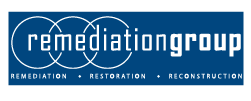The Impact of Certificate of Need (CON) Laws on Healthcare Real Estate
Real estate professionals that specialize in healthcare real estate are familiar with its accompanied regulatory environment. From Stark Law and Anti-Kickback Statutes (AKS) to Joint Commission (TJC) Surveys and Centers for Medicare/Medicaid Services (CMS) Accreditation, the healthcare real estate industry must function within a compliance framework. Adding another layer of control, many state governments have enacted legislation that controls the addition of healthcare facilities and services to ensure equitable access to care. This legislation is referred to as Certificate of Need (CON) Laws and it serves as a state-based regulatory mechanism that controls the quantity and geographic spread of healthcare facilities and services. Introduced to most states in the 1980s, the CON Legislative Landscape is currently evolving and the potential upheaval to healthcare facilities conceivably significant.
States with Projected Legislative Changes Across the United States
Several states are on the brink of significant shifts in their Certificate of Need (CON) programs. North Carolina, Connecticut, Tennessee, Vermont, and Georgia are among the states where upcoming legislative changes could dramatically alter their CON oversight. These impending adjustments reflect a broader trend towards reevaluating the necessity and impact of CON regulations, signaling potential upheavals in how healthcare facilities are planned and developed in these regions.
Minimalist CON States
In addition to those states poised for change, some states have already significantly scaled back their CON programs. Montana, Florida, South Carolina, and Arizona have reduced their regulatory oversight to a minimal level, focusing on three or less critical healthcare service categories. These reductions represent a move towards deregulation while retaining some degree of state control over essential services.
States with No CON Programs
Further illustrating the shift away from stringent CON oversight, twelve states – including Texas, California, Colorado, Kansas – have completely repealed their CON programs.
States with Stable CON Programs
In contrast to the widespread changes, a number of states continue to uphold comprehensive and stable CON programs. These states, including New York, Illinois, and Virginia, maintain rigorous regulatory frameworks covering various healthcare services and facilities. However, as more states reevaluate and adjust their CON laws, the stability in these regions may be increasingly seen as the exception rather than the rule.
Across the eastern United States, states such as North Carolina, Tennessee, Georgia, Vermont and Connecticut are on the precipice of upcoming legislative changes impacting state-level CON rules. These modifications influence increased competition versus market stability, enhanced access versus protection of vulnerable facilities, and innovation versus quality control. The repeal of Certificate of Need (CON) regulations in states like Florida and South Carolina have led to rapid growth in healthcare facility development and increased market competition. A healthcare provider must prepare for the evolving CON landscape; adapting to remain competitive is essential.
To explore this topic further, download RTG’s white paper:
“Certificate of Need (CON): The Evolving Landscape – Is Your Health System Prepared?”
Additionally, access RTG’s best practice guide for actionable insights into facility development, market planning, and real estate acquisition:
“The Impact of Evolving CON Legislation on Healthcare Systems’ Real Estate Strategies”
Interested in learning about the state of play of the CRE industry? Read the full State of Play publication with this link.
Thank you to our State of Play Sponsors:






To stay up to date on news and resources such as this and other topics of importance to the real estate industry, subscribe to the free CRE Insight Journal Newsletter using this link.
Comments are closed.









